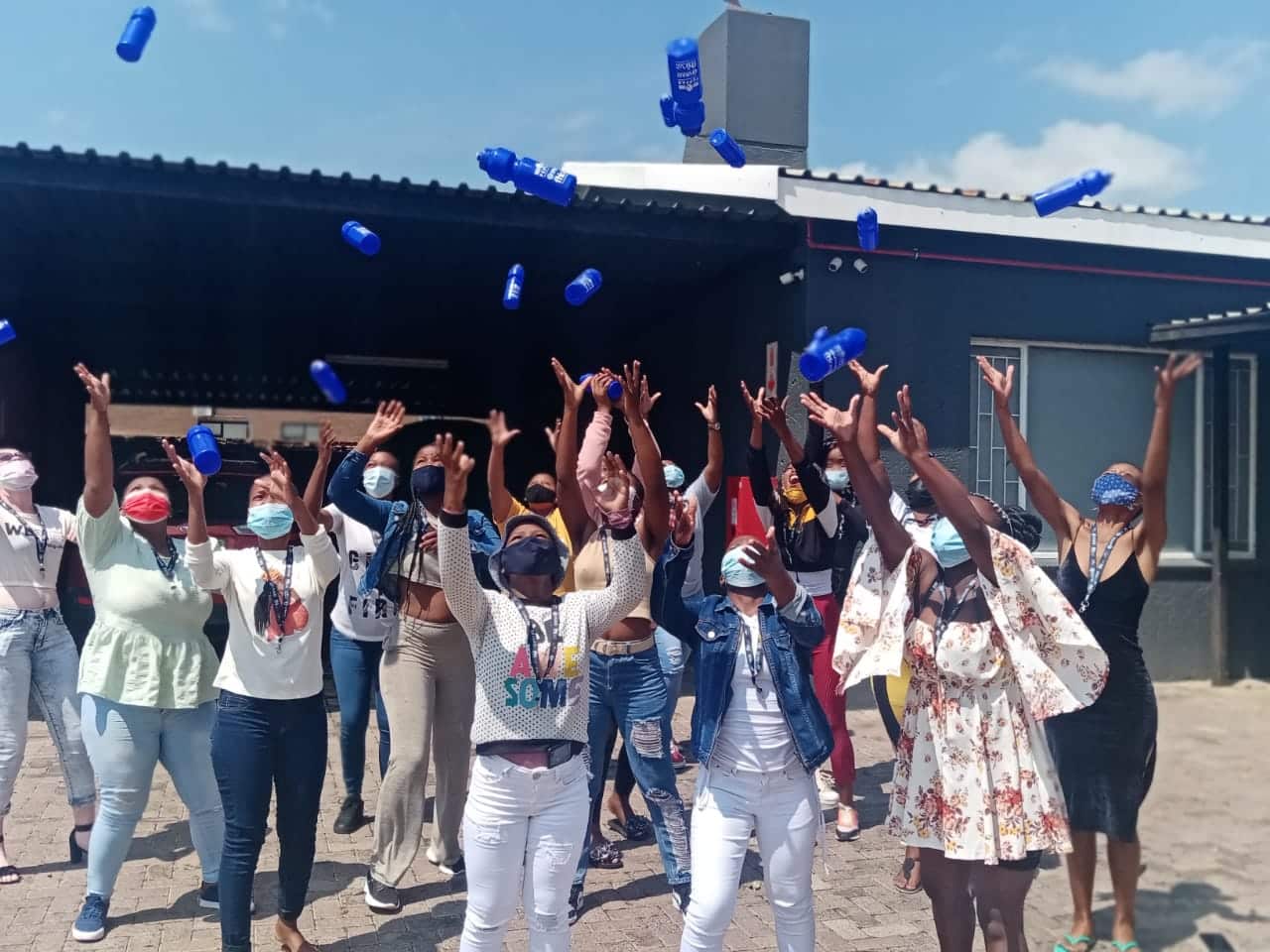Young women and girls aged 15 to 24 are the population group with the highest risk of HIV infection and gender-based violence in South Africa, according to research on new HIV infections in the country. With SA’s youth in focus this month, it is vital to understand the risk factors that can make young women vulnerable to unprotected sex, contracting HIV, intimate-partner and gender-based violence – and how they can be protected and offered supportive services. Supporting young women and girls with both medical and community-based interventions may offer the key to the ‘AIDS-free’ generation where girls are free to live out their dreams.
One initiative providing this kind of support is the USAID-led programme called DREAMS. The programme stands for Determined, Resilient, Empowered, AIDS-free, Mentored, and Safe (DREAMS) and is supporting high-risk young women and girls around the country – in partnership with the National Department of Health and implementing partners such as BroadReach Health Development.
Dhirisha Naidoo from BroadReach Health Development oversees the DREAMS initiative and says young women face many barriers to HIV prevention. “If a young girl is sexually active or has experienced violence, she may not have the power to negotiate condom-use. She may not have the supportive environment or knowledge to protect herself from contracting HIV by taking PrEP (Pre-exposure Prophylaxis) or contraception to protect herself from unwanted pregnancies. Unfortunately, due to not having enough information and education on PrEP, one can misunderstand the importance of this intervention. That is why it is very important to work not only with girls, but also to educate their guardians, partners and communities,” says Naidoo.
A UNAIDS report on woman and girls and HIV highlights signs that a girl or young woman may be vulnerable to contracting HIV. These include:
- When a girl lives in poverty and looks to men for financial security, she may lose her free will because she is dependent on a man.
- A young woman with a partner who is five or more years older may have a power imbalance within the relationship that makes it hard to negotiate condom use.
- A girl who receives expensive gifts from a man or is living in his house instead of with her parents may be pressured to ‘pay for’ these gifts with unprotected sex.
- Living in close quarters with unemployed men, such as with a stepfather, uncle or cousin, who may be home all day, could impact a girl’s privacy and may create multiple opportunities for coercive sexual acts.
Naidoo’s DREAMS team screen young women for such risk factors and put in place measures to support them both socially and medically. Interventions could include protecting them from infection, by offering the HIV prevention medication PrEP. If a girl is already HIV positive, she is supported with interventions to help her remain virally suppressed so that she does not develop AIDS. In cases where young women may have been exposed to HIV through unprotected sex or rape, they are offered post-exposure prophylaxis (PEP), a medication which should be taken within 72 hours of HIV exposure.
In addition to HIV-related services, the programme provides other clinical services for girls, including care for other sexually transmitted illnesses. They also work closely with aligned organisations to provide gender-based violence support services, post-violence care, family planning and mentorship on life skills and career opportunities, so that the girls in the programme may overcome their hardships and pursue brighter futures.
Alongside these interventions USAID has started a peer-mentorship ambassador programme where young women who have been thriving in the programme support other young women who have joined more recently. Together they create a supportive, non-judgmental and empowered community. “We have instances where a girl might have been exposed to an incident of abuse, intimate partner violence or gender-based violence, and through the support of programmes such as this, is able to garner support, counselling and advice from others with similar experiences. In turn, many of the girls use this strength to support another girl going through something similar. They support each other in reporting violence, getting the help and services they need, and going to court. They become each other’s champions and support systems,” explains Naidoo.
“In my community many young girls are getting raped and they don’t know where to turn to for help,” shares Sukoluhle Nhlabathi, a DREAMS programme ambassador in Mpumalanga. “I talk to my peers and tell them to come to the clinic and explain how they can be helped. I think the DREAMS programme can change how us girls react to situations. It has become a safe space for me to express myself.”
Since 2019, BroadReach Health Development, in partnership with the Kwazulu-Natal and Mpumalanga Departments of Health, has implemented the DREAMS programme across 18 sub-districts in South Africa. The programme is funded by the US’s government’s PEPFAR and USAID and aims to prevent HIV and gender-based violence among young women. It also provides opportunities for mentorship and economic advancement for an AIDS-free generation of women.
It is wonderful to see how the supportive environment enables girls enrolled in the programme to develop into empowered adults who can live out their dreams, concludes Naidoo.

